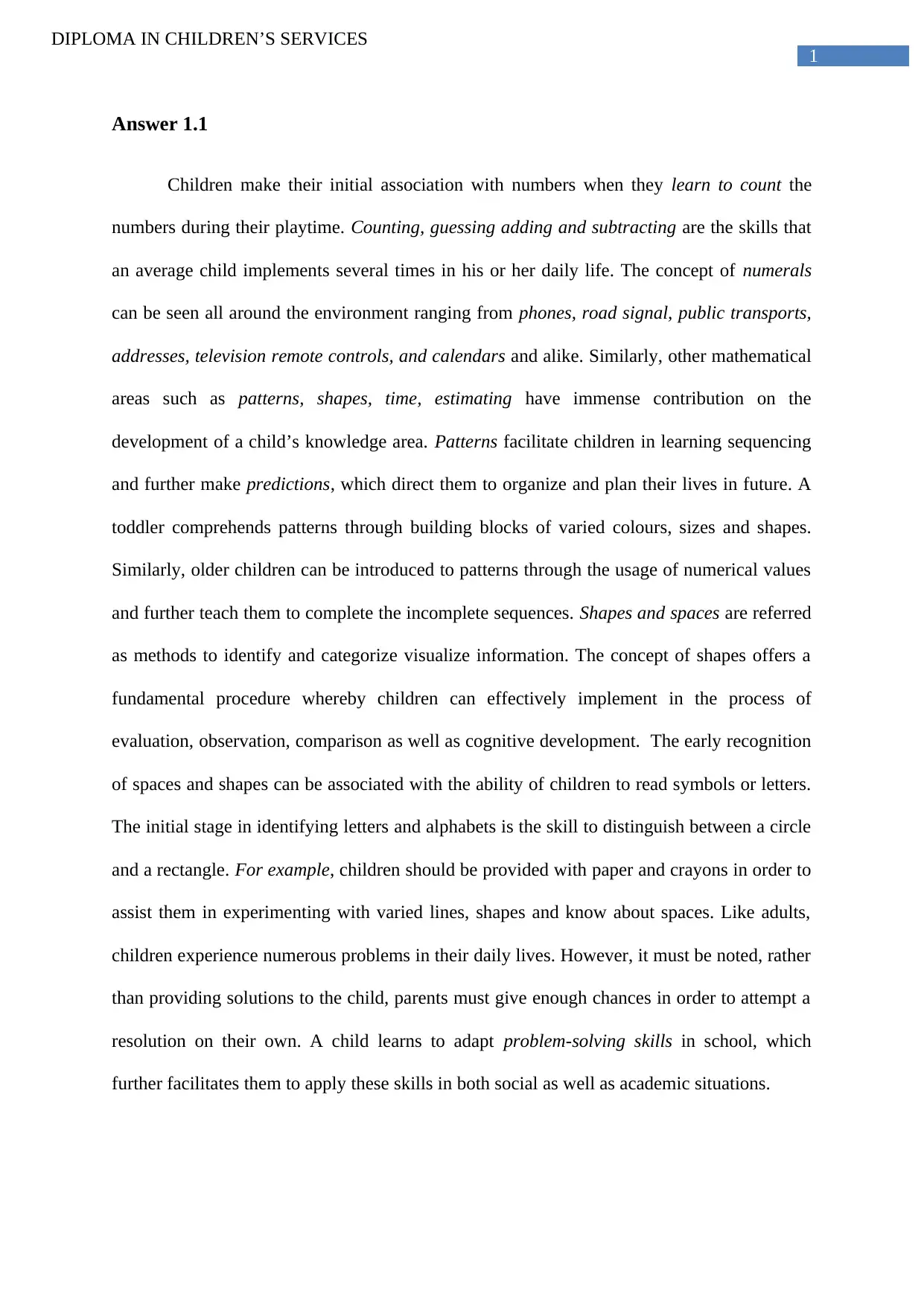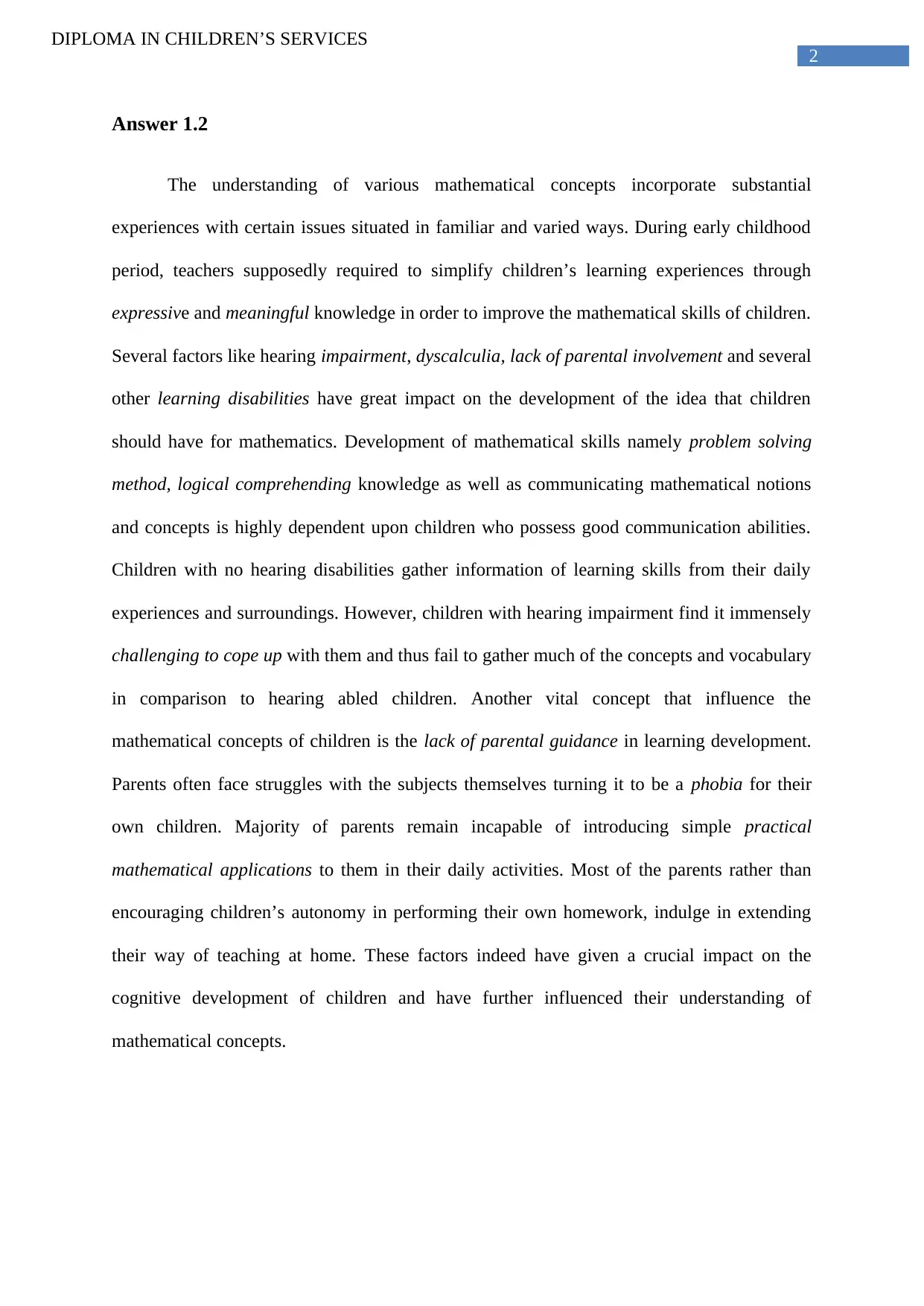Early Childhood Math Skills and Development Assignment
VerifiedAdded on 2021/04/17
|3
|654
|39
Homework Assignment
AI Summary
This assignment delves into the development of mathematical concepts in early childhood, emphasizing the significance of counting, patterns, shapes, and problem-solving skills. It explores how children learn to recognize and apply these concepts in various contexts, such as through the use of shapes and patterns, the concept of spaces, and the application of problem-solving in real-life scenarios. Furthermore, the assignment highlights factors that influence children's mathematical skills, including hearing impairments, dyscalculia, and the impact of parental involvement. It emphasizes the importance of expressive and meaningful knowledge in early childhood education, as well as the challenges faced by children with disabilities and those lacking parental support. The assignment also touches on the crucial role of communication abilities in children's understanding of mathematical concepts, and the need for parents to encourage children’s autonomy in their learning process.
1 out of 3









![[object Object]](/_next/static/media/star-bottom.7253800d.svg)